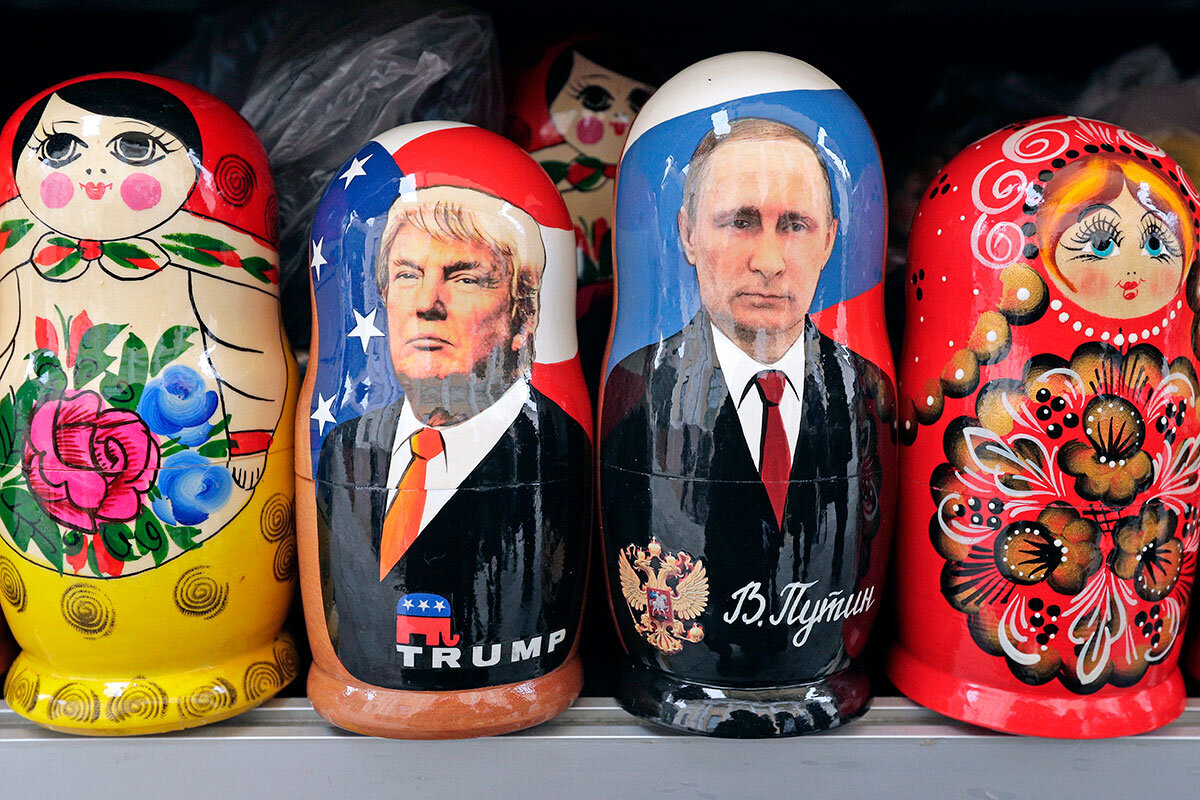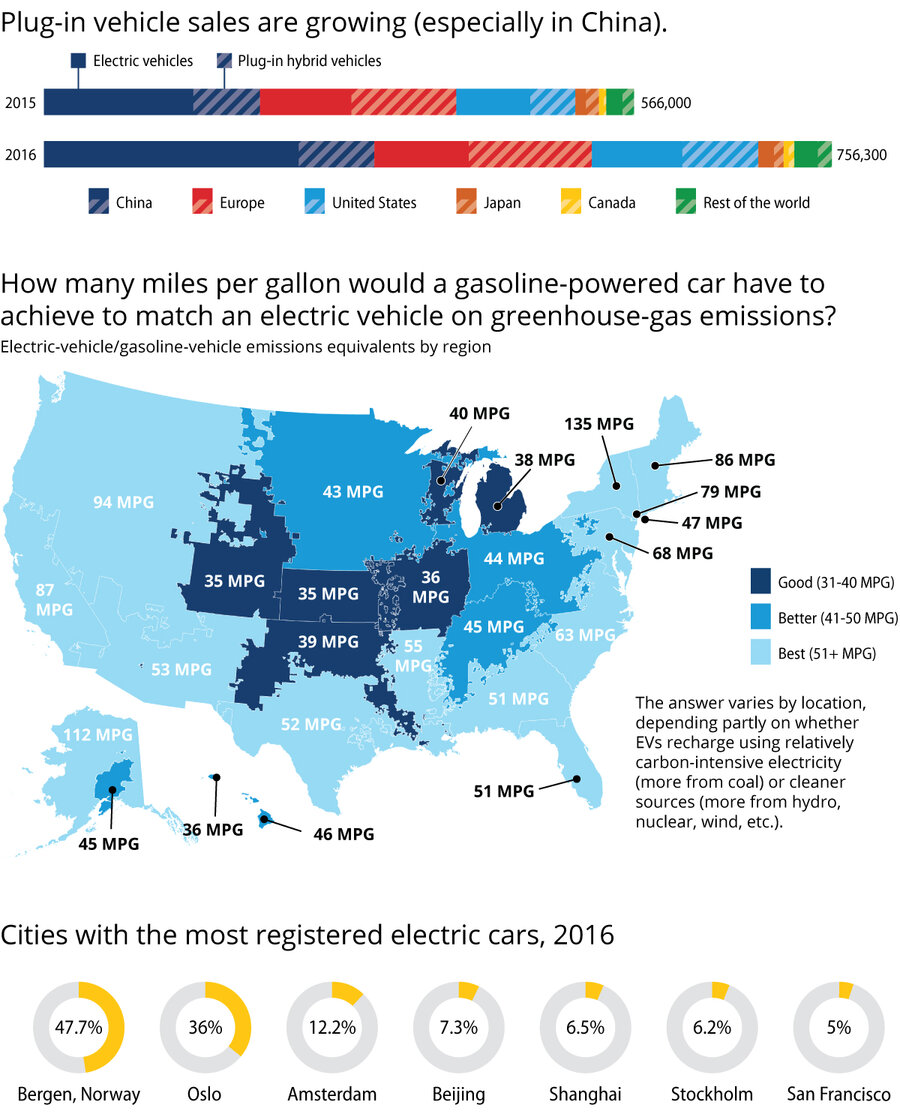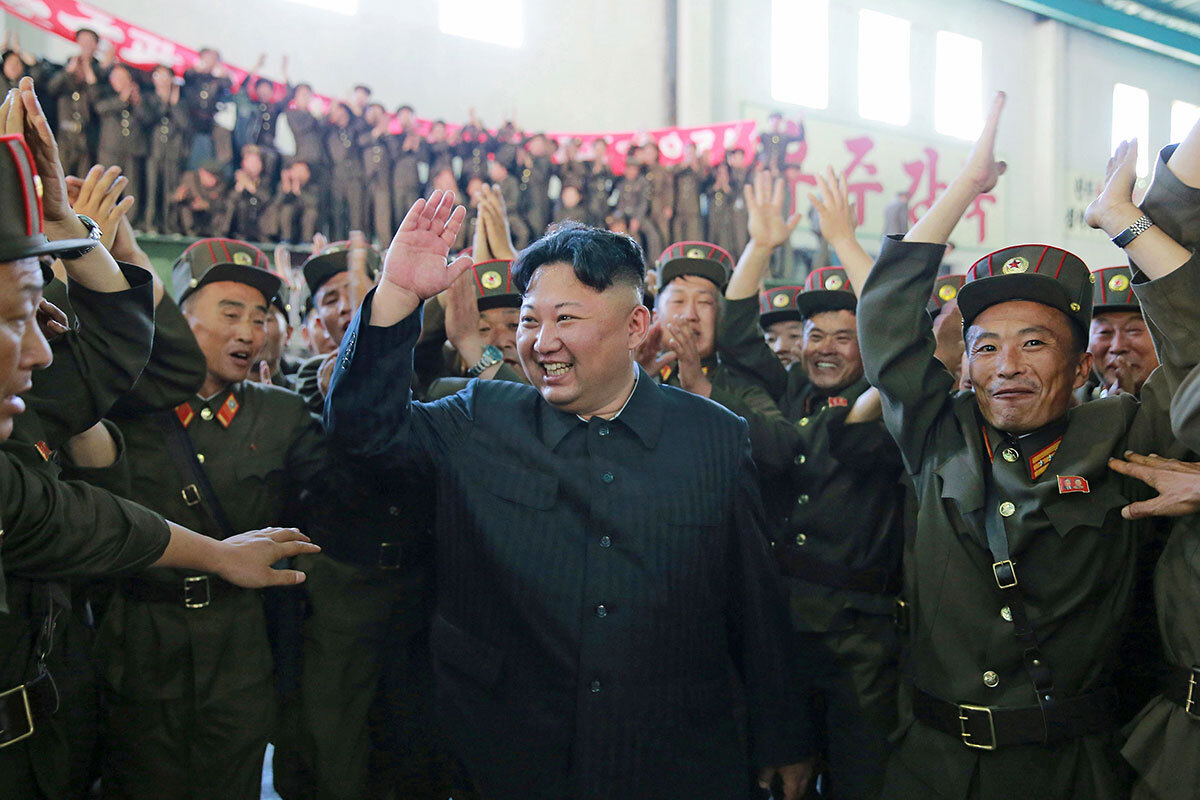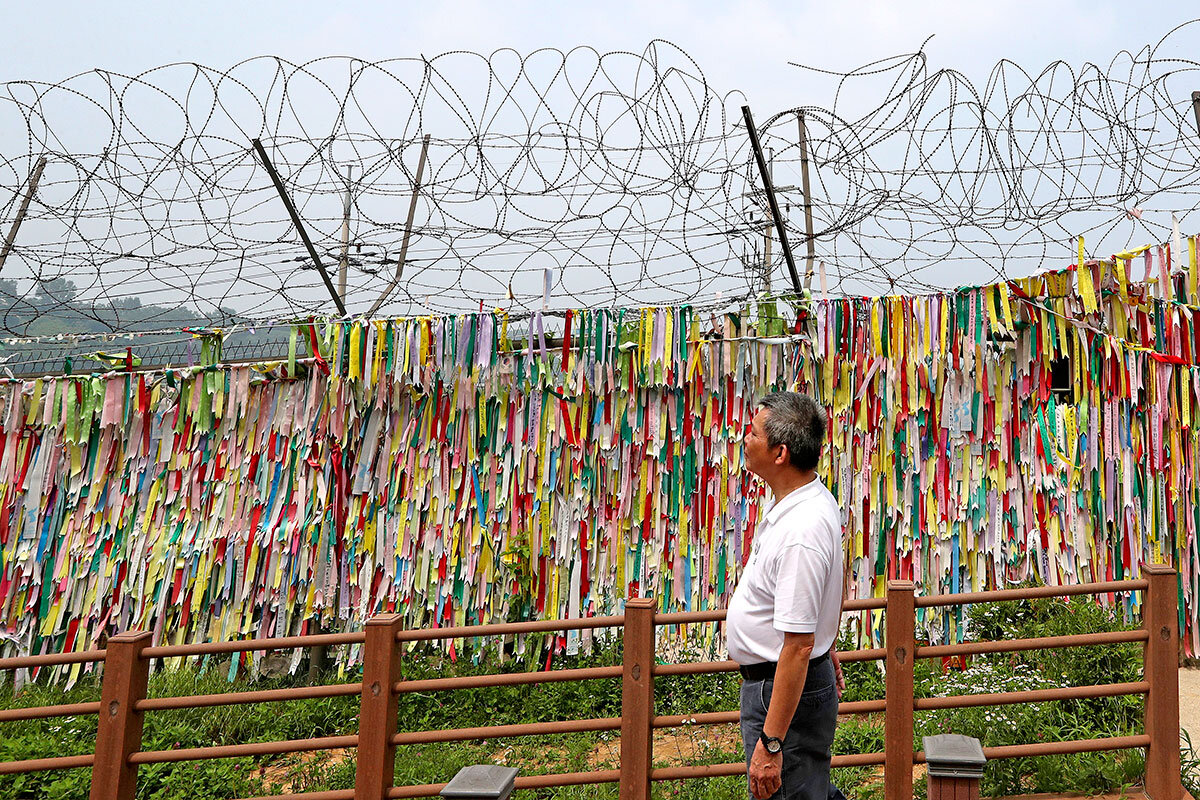What does Russia hope to get out of Friday’s bilateral meeting between Russian President Vladimir Putin and President Trump? Surprisingly little, reports long-time Moscow-watcher Fred Weir, who found the Russians growing disillusioned by Mr. Trump.
Monitor Daily Podcast
- Follow us:
- Apple Podcasts
- Spotify
- RSS Feed
- Download
 Yvonne Zipp
Yvonne Zipp
Lots of attention has been paid to the Trump Election Integrity Commission’s request to states for voter data – and the tally of more than 40 states that have said they are unable to comply, in whole or in part. (That includes Kansas, the home state of commission head Kris Kobach.)
But a second letter went out the same day, this time from the Department of Justice. And voting-rights experts are concerned that its significance is being overshadowed by the commission headlines. The letter was sent to all 44 states covered by the National Voter Registration Act of 1993, asking them to detail how they maintain their voter eligibility lists.
“If this went to any individual state, I don’t think anybody would’ve blinked twice,” Justin Levitt, a professor at Loyola Law School and former deputy assistant attorney general, told reporters. What made the letter “really weird,” he said, was the sheer number it was sent to.
The question of how to properly update voter rolls – without suppressing legitimate votes – after people move or die is one that needs to be approached carefully, the Brennan Center for Justice argues. “Being careful would include not removing people right before an election, giving voters targeted for removal notice before they are removed, being very sure that two different people with similar names are not confused for each other, and ensuring that voters have an easy way to get back on the rolls on Election Day if they are mistakenly purged.”
Our Southern staff writer, Patrik Jonsson, is in Sparta, Ga., today working on a story about how that city wound up purging roughly one-fifth of its voters from the rolls – and what happened after. Watch for that soon.










